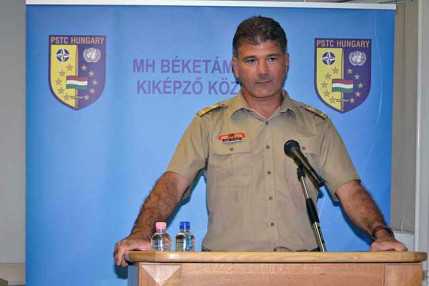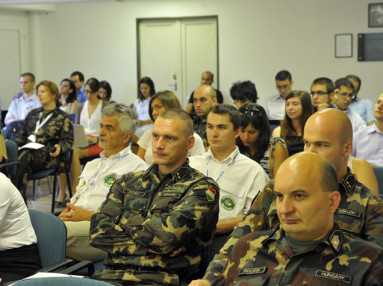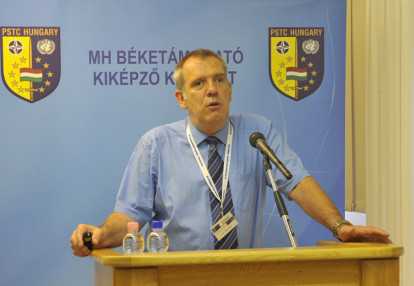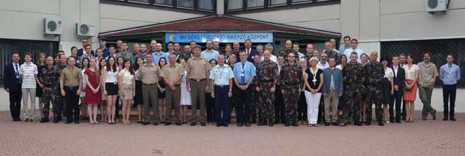NATO as the Central Topic of this Year’s Summer University
Szöveg: Dániel Kovács | 2014. július 31. 9:00This year the Tisza Euro-Atlantic Summer University opened the 15th time on Monday, 28th July. After the successful last year it is Szolnok again – or to be more exact the HDF Peace Support Training Centre – which is tasked with hosting the series of lectures and seminars lasting until 1st August.

At the opening of the six-day long event Major General István Kun Szabó, Public Relations deputy state secretary of the Hungarian Ministry of Defence welcomed the initiative allowing both civilians and military people to get immersed in security policy issues.
This year – on the occasion of the 15th anniversary of Hungary’s NATO accession – the lectures focus on the missions of the North Atlantic Alliance, its crisis management activities, and on its responses to new security challenges. This year 60 participants attend the program.

Another determining element of the lectures and seminars is the opportunity for the participants to familiarise with current NATO challenges and the Alliance’s vision of future with special regard to the preliminaries of the September summit of the Alliance and the challenges necessitating comprehensive military-law enforcement-public administration cooperation. This year the theory and practice of crisis management comprise an important element of the training material which the participants meet through simulation exercises.

“Those who took up the participation at the summer university are extremely open and interested in their environment, crisis zones and in the technical, military and political details of their management" security policy expert Péter Tálas said answering the question of www.honvedelem.hu. As director of the Institute for Strategic Defence Research of the National University of Public Service and the head of the summer university Mr Tálas added: the participants are mostly interested in European crises and those that directly affect Europe and Hungary and many of them are interested in the impacts of the economic crisis on Hungary.

Photo: Gábor Galovtsik and Tünde Sebők